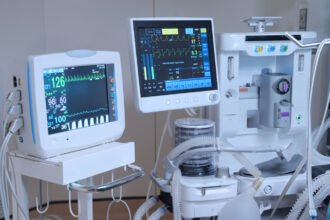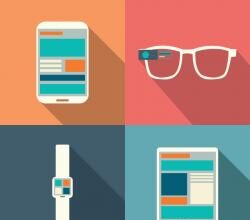 You hear all sorts of concerning and sometimes even philosophical things on the NYC Subway system. I was recently taking the D for a nice trip to Sylvia’s in Harlem for Fried Chicken and BBQ when I overheard the following emphatic statement:
You hear all sorts of concerning and sometimes even philosophical things on the NYC Subway system. I was recently taking the D for a nice trip to Sylvia’s in Harlem for Fried Chicken and BBQ when I overheard the following emphatic statement:
“Technology makes you soft!”
 You hear all sorts of concerning and sometimes even philosophical things on the NYC Subway system. I was recently taking the D for a nice trip to Sylvia’s in Harlem for Fried Chicken and BBQ when I overheard the following emphatic statement:
You hear all sorts of concerning and sometimes even philosophical things on the NYC Subway system. I was recently taking the D for a nice trip to Sylvia’s in Harlem for Fried Chicken and BBQ when I overheard the following emphatic statement:
“Technology makes you soft!”
At face value, this seems like a rather uninformed comment, but at its core (although unattended given the context at the time), I think the statement is rather intriguing.
We (as the collective population operating on a sustainable income) are highly dependent on technology. But does it make you soft?
If we rely on the definition thrown around in competitive sports, soft implies that you are weak, able to be pushed around; this is probably not the right context.
However, if we define soft as risking a full loss of “hard” skills that many of us were brought up learning, then that may absolutely be true. There has been a significant decrease in our utilization of hard skills and face-to-face interactions, which is changing fundamental aspects of our society.
So what does this have to do with Healthcare?
Healthcare is one of those unique industries where these hard and soft skills will continue to have a unique interplay. Technology is penetrating all aspects of Healthcare, especially the ones whereby former “hard” skills were the only method. Previously surgeons performed all operations with a complete lack of technology outside of a few mechanical tools. Shift to 2014, advances in robotics, computers, and medical devices are providing physicians will completely interactive environments and systems to perform the most complex, life-saving procedures.
As Healthcare and other industries continue to increase the adoption and penetration of technology, it is important that technology promotes the right interface between hard and soft skills and interactions.
When is it appropriate for a patient to communicate virtually with a doctor instead of in person? Questions like these are being asked which will help guide the ongoing development within the healthcare sector.
(technology in healthcare / shutterstock)







